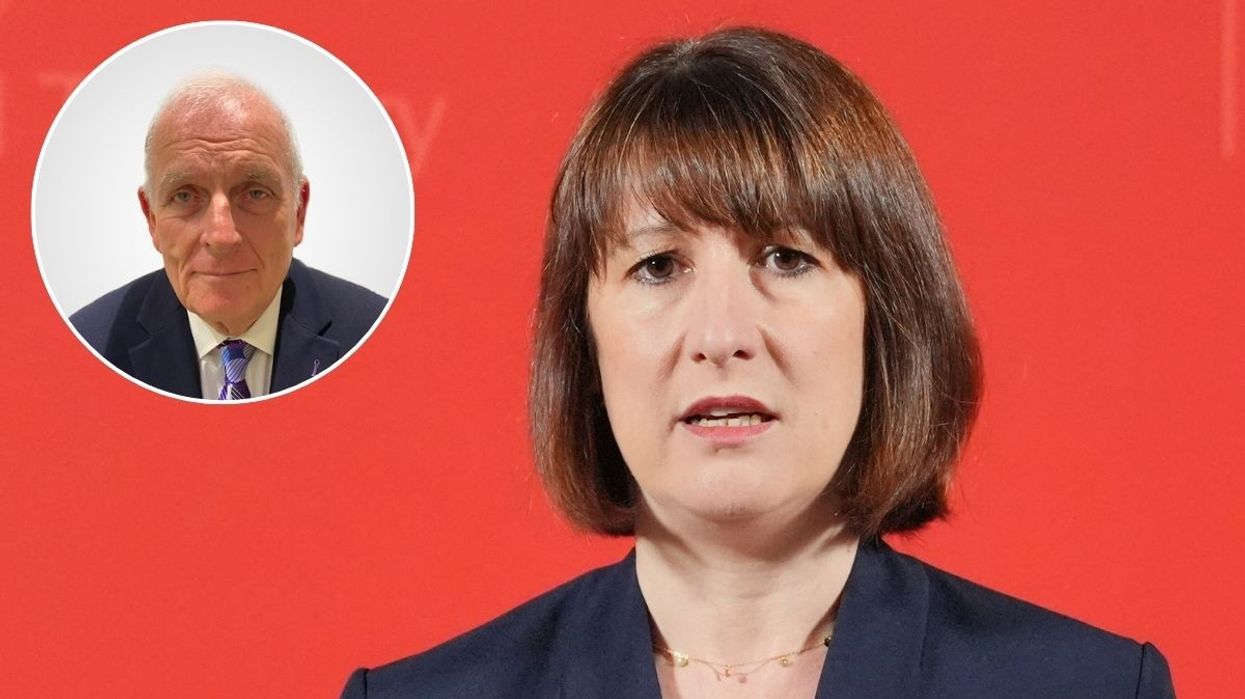Rachel 'Thieves' should freeze the gold-plated pensions of state employees - Kelvin Mackenzie

"All new employees to state jobs should be offered bog-standard pensions but larger salaries," says Kelvin Mackenzie
|GB News/ Getty

Kelvin MacKenzie is the former editor of The Sun
Don't Miss
Most Read
This is an absolute scandal and if Rachel 'Thieves' really wanted to balance the books, she would freeze the gold-plated pensions of state employees which new research shows is almost four times the equivalent of a private sector worker- £25,000 against £7,000.
The research was carried out by the Taxpayers Alliance and was based on a typical state worker (civil servant, NHS, teacher etc) and a typical private sector employee joining at 25 their outfit and retiring at 68 and both sets earning the national median income of £35,464.
The difference is this. The state employee puts in a 27 per cent contribution (that’s taxpayer money) while the private employee puts in just 4.18 per cent (no taxpayer money). So, when it comes to retirement date the state employee leaves with 70 per cent of their pay while the private receives just 20 per cent.
Is it any wonder that state employees are rushing out the door as soon as they can, especially teachers who all want to call it a day once they are 50 and have done thirty years.
Even if they do sacrifice a few points on their pensions, they are so much better off than the rest of the workforce. And they soon catch up as their pensions are inflation-linked, something often not available in the private industry.
And the argument that you earn less with the state is simply not true. 90 per cent of the public sector makes the same as private. I suspect that 10 per cent difference is made up of more part-time employees.
Rachel Reeves made the situation worse when she took over as Chancellor. She talked a lot about a black hole of £22 billion and promptly handed the doctors 22 per cent and the rest of the state workforce 5.5 per cent. They all accepted with speed.
What Reeves didn’t say was what effect the increased pay would have on our unfunded pension bill. Currently, that stands at £2.9 trillion, exceeding our GDP at £2.7 trillion and our national debt at £2.5 trillion. Thanks to Reeves it has gotten a lot worse.
If Labour really wanted to be the financial party (is that a joke or what?) they must freeze these pensions for newcomers. Why should an ordinary man or woman working in the private sector have to fund through their taxes a civil servant or teacher making the same money, who in the end will have a pension of £25,000 against their £7,000?
It’s not fair and it doesn’t make sense. But, have you noticed how no politician of any colour wants to talk about it? They take the applause of handing out the pay but don’t want the boos of people who point out the massive, hidden cost of the pension.
It’s time to end this scandal. All new employees to state jobs should be offered bog-standard pensions but larger salaries. Already the UK’s largest school group, United Learning, has announced staff will be offered increased pay to leave the massively over-generous Teacher Pension scheme.
Personally, I would take the public sector on. They have turned into the miners of the 80s. Their threat was that we will cripple your companies and force you to live by candle-light. Thatcher stood up to them and won.
LATEST OPINION:
- Labour's neglect of ordinary people’s concerns with a sprinkling of contempt is fuelling rage and despair - Kwasi Kwarteng
- If GB News did something as stupid as ITV - they would get their license taken away - Kelvin Mackenzie
- Majority has not just been ignored but stamped on by the anti-British political class - Ben Habib
Doctors, teachers and the like are doing the same. I am quite happy for the doctors to earn what they deserve, but that can’t happen while there is a monopoly employer who answers to a trade union, the BMA.
Instead of being contracted to the state they should be contracted to the patient. We should pay when we require their services. Yes, it might cost £60 for each visit to the doctor but a) we would only go when we actually get ill and b) we might be treated like a customer rather than getting in the way of the smooth running of the surgery.
There would be exceptions. The skint, the under 18s and the over 68s wouldn’t pay. Nor would the long-term sick. It would split like Ireland, with 65 per cent paying, and 35 per cent not.
And the pension payments would be an issue for the doctors and not for us.










